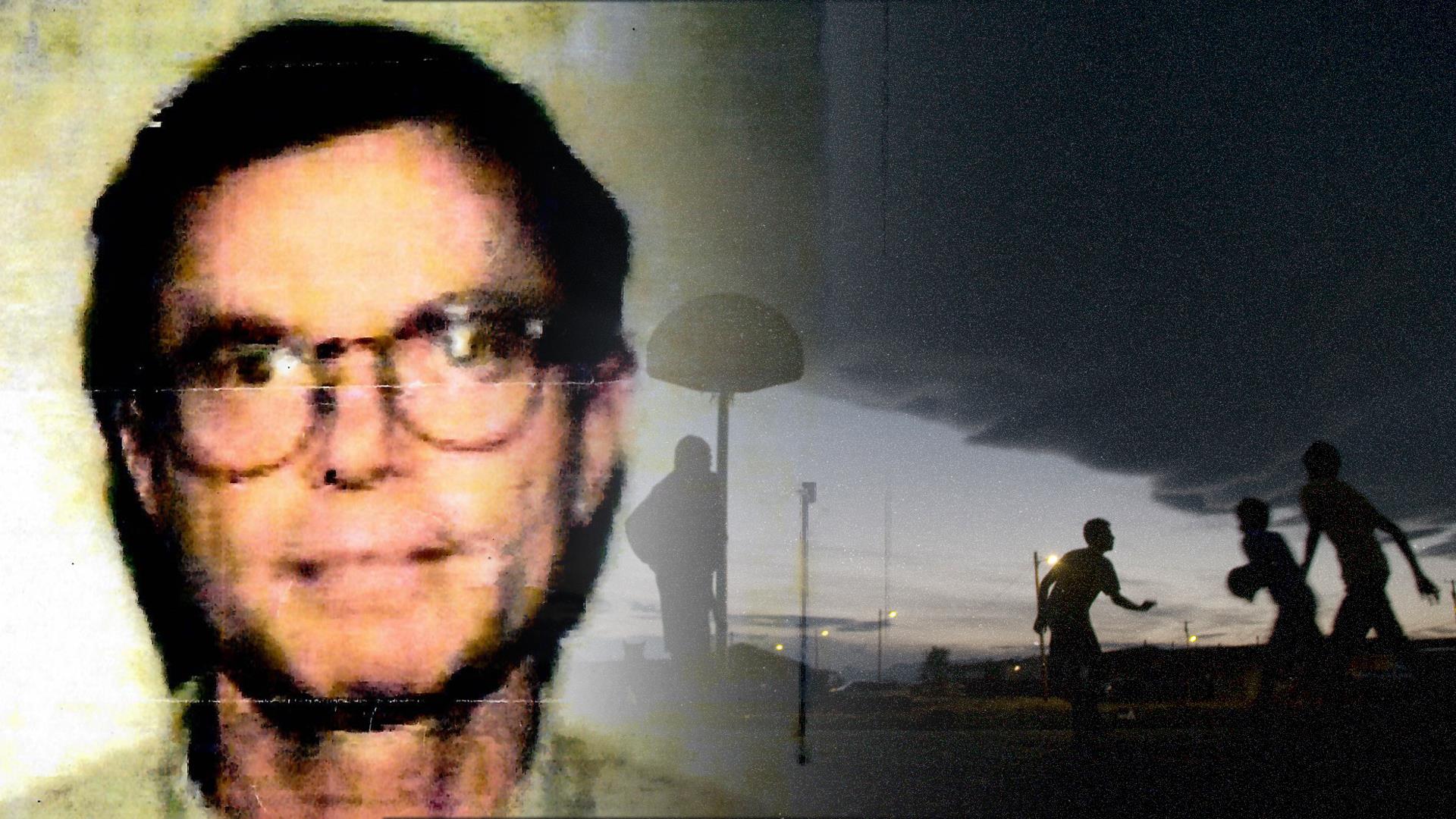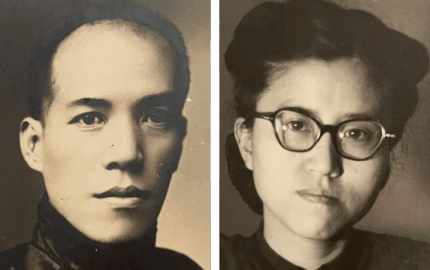Cambridge, Mass. — “Forsaken by the Indian Health Service,” a joint investigation by The Wall Street Journal and PBS’s “Frontline,” is the winner of the 2019 Worth Bingham Prize for Investigative Journalism. The reporting exposed decades of abuse, negligence and dysfunction inside the Indian Health Service, the federal agency that provides health care to more than two million Native Americans.
In articles and in the accompanying documentary “Predator on the Reservation,” the reporters revealed that the IHS failed to stop child predators and other dangerous doctors practicing in hospitals that serve some of the nation’s poorest and most vulnerable citizens, many of whom have no other health care options.
The reporting began with a profile of Stanley Patrick Weber, an Indian Health Service pediatrician who was transferred from reservation to reservation and allowed to practice despite accusations that he was sexually abusing Native American boys. Later articles showed that IHS—often in violation of the agency’s own policy— had hired other physicians with criminal records, sanctioned licenses or malpractice suits and showed how those doctors’ inferior care caused injury and even death to some IHS patients.
Bingham judge Andrew Chavez, a coding journalist at The New York Times, said: “The reporting team showed not only an environment of neglect and tolerance within the agency but active obfuscation of abuse toward a vulnerable, historically marginalized population. Through records pulled from hundreds of background checks, and a series of surprisingly candid interviews, the team showed that many of the problems uncovered were the result of longstanding systemic issues and an atmosphere of easy tolerance that had pervaded the IHS.”
The reporting team included Wall Street Journal reporters Christopher Weaver, Dan Frosch and Anna Wilde Mathews; video journalist Gabe Johnson; researcher Lisa Schwartz; graphics editor Joel Eastwood; and deputy investigations editor Jennifer S. Forsyth. Team members from PBS’s “Frontline” were executive producer Raney Aronson-Rath, managing editor Andrew Metz, senior producer Frank Koughan and director of photography Mike Shum.
During the course of the 18-month investigation, reporters researched some 850 doctors across the country, logged 40 trips to nine states, including 13 visits to the Pine Ridge Reservation in South Dakota, and conducted at least 375 interviews. Because of the sensitive nature of the story and the remote location of many of the alleged crimes, the reporters spent extra time gaining sources’ trust and devised ways to speak to a number of people who didn’t own phones, lacked gas money to get to interviews or had no permanent home.
The reporters analyzed a Treasury Department database of payments in civil lawsuits, discovering that the U.S. government paid $55 million in settlements to more than 160 plaintiffs alleging malpractice at IHS hospitals over a 13-year period. At least 66 patients in those cases died.
The reporting quickly led to a number of important outcomes and reforms: On the day the first article was published, the IHS announced an immediate overhaul of its policies, requiring employees to report suspected abuse to local and federal law enforcement within 24 hours. It also introduced agencywide training, fired at least two officials, and prohibited the hiring of doctors with licensing-board actions restricting their practice. The IHS also publicly vowed to protect whistleblowers.
In Washington, a presidential task force was created to determine how Weber was allowed to abuse his victims with impunity, at least five federal investigations were launched, and a manager at the hospital where Weber worked was suspended and subsequently resigned.
In February, Weber was sentenced to five lifetime sentences for his crimes. After the reporting revealed that he continued to receive a six-figure pension despite his sex-abuse conviction, federal lawmakers, including U.S. Sen. Steve Daines (R., Mont.), proposed legislation that would allow the government to revoke pensions for convicted child abusers. Related legislation is currently still pending in the U.S. Senate and another version has been introduced in the House.
In January, the IHS commissioned a third-party investigation, providing access to internal documents within the agency and creating a detailed account of who knew what and when. Lawmakers have demanded that the agency release those findings and The Wall Street Journal continues to push to make the results public. On April 20, the paper’s publisher filed a public records lawsuit seeking to compel the government to disclose the report, which the agency has said is confidential.
Bingham judge Denise-Marie Ordway, managing editor of Journalist’s Resource, noted: “As a whole, news outlets largely ignore indigenous communities. But in this case, two newsrooms teamed up to take on significant issues in Indian Country, exposing the challenges Native people of all ages face in getting basic health care. Importantly, the entry spotlights the challenges tribes face in holding people who aren’t part of the tribe accountable.”
The $20,000 Bingham Prize is presented annually by the Nieman Foundation for Journalism at Harvard University in Cambridge, Mass.
The journalists who judged the Bingham submissions this year are: Andrew Chavez and J. David McSwane, winners of the 2018 Worth Bingham Prize for the Dallas Morning News investigation “Pain and Profit,” which exposed mismanaged health care in Texas (Chavez is now a coding journalist on the interactive news team at The New York Times and McSwane is an investigative reporter for ProPublica); Mary Ellen Klas, the Miami Herald’s Tallahassee bureau chief and a 2019 Nieman Fellow; Steve Myers, enterprise editor at USA Today and a 2019 Nieman Fellow; Denise-Marie Ordway, managing editor of Journalist’s Resource at Harvard University’s Shorenstein Center on Media, Politics and Public Policy and a 2015 Nieman Fellow; Stuart Watson, an investigative reporter, creator of the “ManListening” podcast and a 2008 Nieman Fellow; and Steven Wilmsen, narrative editor at The Boston Globe.
The Worth Bingham Prize honors investigative reporting of stories of national significance where the public interest is being ill-served. Worth Bingham, who died at the age of 34, achieved prominence as an investigative journalist and was vice president and assistant to the publisher for the Louisville Courier-Journal. He was a 1954 Harvard University graduate. His family and friends created the annual prize in his memory in 1967.
The Nieman Foundation for Journalism at Harvard educates leaders in journalism and elevates the standards of the profession through special programs that convene scholars and experts in all fields. More than 1,600 journalists from 99 countries have been awarded Nieman Fellowships since 1938. The foundation’s other initiatives include Nieman Reports, a quarterly print and online magazine that covers thought leadership in journalism; Nieman Lab, a website that reports on the future of news, innovation and best practices in the digital media age; and Nieman Storyboard, a website that showcases exceptional narrative journalism and explores the future of nonfiction storytelling.
In articles and in the accompanying documentary “Predator on the Reservation,” the reporters revealed that the IHS failed to stop child predators and other dangerous doctors practicing in hospitals that serve some of the nation’s poorest and most vulnerable citizens, many of whom have no other health care options.
The reporting began with a profile of Stanley Patrick Weber, an Indian Health Service pediatrician who was transferred from reservation to reservation and allowed to practice despite accusations that he was sexually abusing Native American boys. Later articles showed that IHS—often in violation of the agency’s own policy— had hired other physicians with criminal records, sanctioned licenses or malpractice suits and showed how those doctors’ inferior care caused injury and even death to some IHS patients.
Bingham judge Andrew Chavez, a coding journalist at The New York Times, said: “The reporting team showed not only an environment of neglect and tolerance within the agency but active obfuscation of abuse toward a vulnerable, historically marginalized population. Through records pulled from hundreds of background checks, and a series of surprisingly candid interviews, the team showed that many of the problems uncovered were the result of longstanding systemic issues and an atmosphere of easy tolerance that had pervaded the IHS.”
The reporting team included Wall Street Journal reporters Christopher Weaver, Dan Frosch and Anna Wilde Mathews; video journalist Gabe Johnson; researcher Lisa Schwartz; graphics editor Joel Eastwood; and deputy investigations editor Jennifer S. Forsyth. Team members from PBS’s “Frontline” were executive producer Raney Aronson-Rath, managing editor Andrew Metz, senior producer Frank Koughan and director of photography Mike Shum.
During the course of the 18-month investigation, reporters researched some 850 doctors across the country, logged 40 trips to nine states, including 13 visits to the Pine Ridge Reservation in South Dakota, and conducted at least 375 interviews. Because of the sensitive nature of the story and the remote location of many of the alleged crimes, the reporters spent extra time gaining sources’ trust and devised ways to speak to a number of people who didn’t own phones, lacked gas money to get to interviews or had no permanent home.
The reporters analyzed a Treasury Department database of payments in civil lawsuits, discovering that the U.S. government paid $55 million in settlements to more than 160 plaintiffs alleging malpractice at IHS hospitals over a 13-year period. At least 66 patients in those cases died.
The reporting quickly led to a number of important outcomes and reforms: On the day the first article was published, the IHS announced an immediate overhaul of its policies, requiring employees to report suspected abuse to local and federal law enforcement within 24 hours. It also introduced agencywide training, fired at least two officials, and prohibited the hiring of doctors with licensing-board actions restricting their practice. The IHS also publicly vowed to protect whistleblowers.
In Washington, a presidential task force was created to determine how Weber was allowed to abuse his victims with impunity, at least five federal investigations were launched, and a manager at the hospital where Weber worked was suspended and subsequently resigned.
In February, Weber was sentenced to five lifetime sentences for his crimes. After the reporting revealed that he continued to receive a six-figure pension despite his sex-abuse conviction, federal lawmakers, including U.S. Sen. Steve Daines (R., Mont.), proposed legislation that would allow the government to revoke pensions for convicted child abusers. Related legislation is currently still pending in the U.S. Senate and another version has been introduced in the House.
In January, the IHS commissioned a third-party investigation, providing access to internal documents within the agency and creating a detailed account of who knew what and when. Lawmakers have demanded that the agency release those findings and The Wall Street Journal continues to push to make the results public. On April 20, the paper’s publisher filed a public records lawsuit seeking to compel the government to disclose the report, which the agency has said is confidential.
Bingham judge Denise-Marie Ordway, managing editor of Journalist’s Resource, noted: “As a whole, news outlets largely ignore indigenous communities. But in this case, two newsrooms teamed up to take on significant issues in Indian Country, exposing the challenges Native people of all ages face in getting basic health care. Importantly, the entry spotlights the challenges tribes face in holding people who aren’t part of the tribe accountable.”
The $20,000 Bingham Prize is presented annually by the Nieman Foundation for Journalism at Harvard University in Cambridge, Mass.
The journalists who judged the Bingham submissions this year are: Andrew Chavez and J. David McSwane, winners of the 2018 Worth Bingham Prize for the Dallas Morning News investigation “Pain and Profit,” which exposed mismanaged health care in Texas (Chavez is now a coding journalist on the interactive news team at The New York Times and McSwane is an investigative reporter for ProPublica); Mary Ellen Klas, the Miami Herald’s Tallahassee bureau chief and a 2019 Nieman Fellow; Steve Myers, enterprise editor at USA Today and a 2019 Nieman Fellow; Denise-Marie Ordway, managing editor of Journalist’s Resource at Harvard University’s Shorenstein Center on Media, Politics and Public Policy and a 2015 Nieman Fellow; Stuart Watson, an investigative reporter, creator of the “ManListening” podcast and a 2008 Nieman Fellow; and Steven Wilmsen, narrative editor at The Boston Globe.
The Worth Bingham Prize honors investigative reporting of stories of national significance where the public interest is being ill-served. Worth Bingham, who died at the age of 34, achieved prominence as an investigative journalist and was vice president and assistant to the publisher for the Louisville Courier-Journal. He was a 1954 Harvard University graduate. His family and friends created the annual prize in his memory in 1967.
The Nieman Foundation for Journalism at Harvard educates leaders in journalism and elevates the standards of the profession through special programs that convene scholars and experts in all fields. More than 1,600 journalists from 99 countries have been awarded Nieman Fellowships since 1938. The foundation’s other initiatives include Nieman Reports, a quarterly print and online magazine that covers thought leadership in journalism; Nieman Lab, a website that reports on the future of news, innovation and best practices in the digital media age; and Nieman Storyboard, a website that showcases exceptional narrative journalism and explores the future of nonfiction storytelling.



